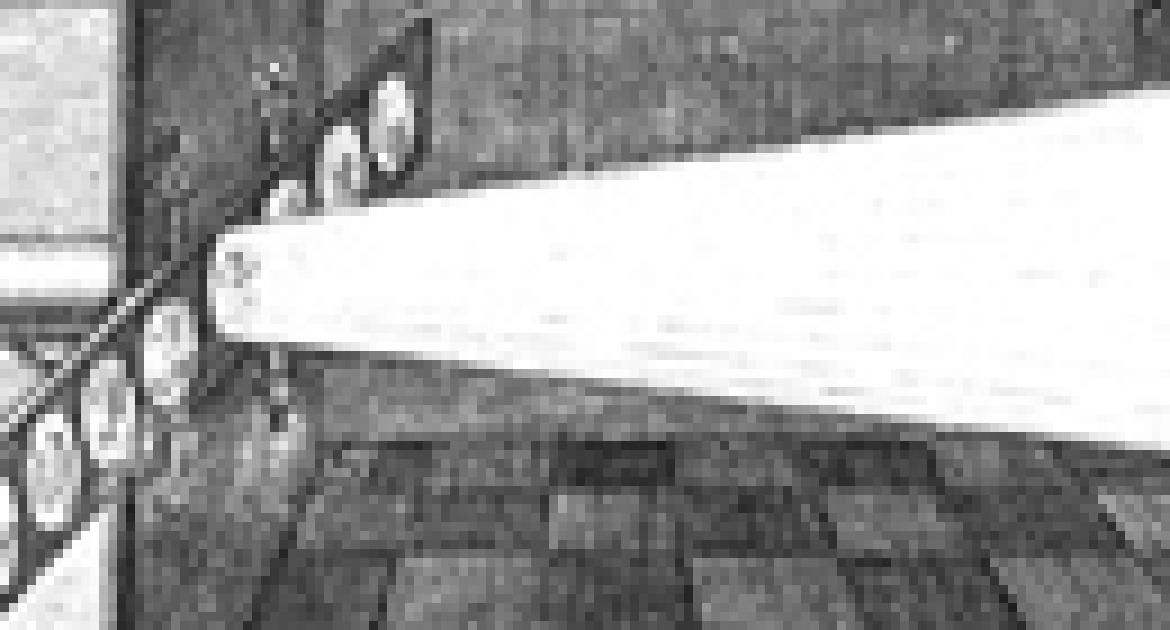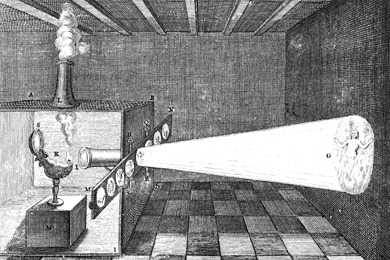Call for Projects> Interactivos? Lima'09: Magic and Technology (closed)

Advanced Project Development Workshop
Medialab-Prado and the Spanish Cultural Center in Lima (Peru) issue a call for the presentation of projects to be developed within the Interactivos?' Lima'09: Magic and Technology workshop, to be carried out in Lima from April 13 through 28, 2009.
Organized by:
The Spanish Cultural Center in Lima / The Spanish Agency for International Development Cooperation [Agencia Española de Cooperación Internacional para el Desarrollo (AECID)] / Medialab-Prado – Área de las Artes del Ayuntamiento de Madrid.
Led by:
Julian Oliver (New Zeland/Spain)
Clara Boj (Spain)
Diego Díaz (Spain)
Kiko Mayorga (Peru)
Dates: April 13 through 28, 2009
Application deadline: February 15, 2009
Venue: Centro Cultural de España en Lima – AECID (Peru)

Introduction
This new edition of Interactivos? is inspired by the strategies of magic and illusion, in order to harness some of the old and new technological resources to collectively build software pieces and interactive installations which can propose a rethinking of the usual scenario in magic tricks, marked by a very clear separation between the wizard and the spectators.
Magic and illusion have always gone hand in hand with technology; from mechanical illusions, optical and mirror tricks, through the incorporation of electricity and the filmed image, to digital technology: augmented reality, reactive objects, reality hacking and immersive spaces.
This open call follows the one celebrated with the same title in Madrid in 2007 and suggests to broaden the topic Magic and Technology through the exploration of the meanings of the magic concept within the local context of Peru.
Through a programme of reflection, research and production, Interactivos?'09 ' Magic and Technology's goals are:
· To propose magic and illusion as an approach for experiments on perception and attention, behaviour and social relationships.
· To propose a critical viewpoint on the seduction of technology and its application on the spectacle as a tool of persuasion and control.
Teachers summoned for the management of the workshop are acknowledged experts in the fields of the developing, application and spreading of open software and open hardware in creative processes and have also a long experience in the educational field and in the management of workshops.
Teachers' approach to the workshop:
Kiko Mayorga:
I believe all creative actions involve magical moments. Magicians’ magic surprises the audience but there is another kind of uncontrolled magic that surprises the magician. In approaching electronic media, we share an interest in the unknown, a capacity for surprise. We create techniques that make possible what is usually thought to be impossible. We intuitively share an interest in experiments and the expansion of language. Electronic languages challenge our senses, our perception of the external and internal. Even if science could explain everything, there would still be a place for magic, because magic is linked to surprise and one's attention can never take in everything.
Based on my local experience with using electronic media for creating and producing, I intend to transmit concepts and contribute to the design, production and implementation of prototypes, proposing solutions ranging from logistics (Lima is unique in terms of DIY) to making and adapting circuits, as well as programming microcontrollers and interfacing with computers and peripherals, according to what is needed for the projects selected.
Clara Boj y Diego Díaz:
In his Dictionary of the Arts, Félix de Azua refers to representation as a fiction accepted by and agreed upon by all those who produce "reality". Magic is also representation: the "magic instant" lasts if the shared fiction between the illusionist and the viewer remains intact. As long as the illusionist's mechanisms, devices and tricks remain hidden, the reality of magic is unquestioned by the viewer.
In technology, fiction is combined with fascination and produces other forms of magic. Even when we know how the technological mechanisms work and accept that instead of tricks there are processes, we allow ourselves to be swept up in the magical atmosphere they generate.
In this workshop we will work with fiction, illusion, technology and processes of perception to explore what happens in the interval between what is hidden and what is known, using technology to generate experiences that call for the creation of "new realities" shared by the viewer and the works.
Julian Oliver:
Magic and Technology presents an exciting challenge for interaction design, one that demands both imagination and ingenuity. How do we use technology in our work while hiding it at the same time? What techniques and technologies can we bring from the arts of magical performance and illusion? How can we incorporate what we know about human psychology and cognition in our design? These questions frame the scope of this workshop. By addressing them in our work we can invoke things wondrous, impossible, mysterious and suprising.
SUBMISSION CALL GUIDELINES >Download (pdf)
Aims of the Call
The purpose of this call for projects is to select no more than 10 projects to be carried out in a workshop held at the Centro Cultural de España en Lima between April 13 and 28, 2009.
At the end of the workshop, the projects will be exhibited at the Cultural Centre of Spain in Lima between April 28 and May 13, 2009.
The workshop proposes to explore the use of open hardware and software tools in a collective and interdisciplinary manner in order to create technological prototypes with success in the Media from different perspectives: playful, creative and critical.
The call is aimed at artists, magicians, engineers, musicians, programmers, designers, architects, hackers, psychologists, or any other person interested in presenting a project on this topic.
The call is open to projects and collaborators from international and local spheres.
The proposals can be presented individually or as a collective. Each participant or team can present as many projects as they would like.
General Characteristics of the Workshop
Methodology:
This workshop aims to be a collective platform for research, production, and learning, offering substantial help and support in developing the projects selected. The proposals will be carried out in multidisciplinary task groups comprised by the author(s) and interested collaborators, with conceptual and technical advice from the teaching staff.
The selected projects must be open to the participation of other interested collaborators, who will be able to contribute to the production of the pieces during the development of the workshop. Therefore, there are two levels of involvement with the workshop:
1 - as a project leader
2 - as a collaborator in any one of the selected projects
Once the projects have been selected, the second step in the process will involve a new call for those people who would like to participate in the projects' production. The call for collaborators will be published on March 6 at the Medialab-Prado and Centro Cultural de España en Lima websites.
Medialab-Prado and Centro Cultural de España en Lima will do their best to provide the materials needed to carry out the selected projects.
Technical Requirements:
The selection committee will carefully examine the technical viability of the projects. For this reason, a clear specification of the technical and spatial requirements of the projects will be positively received.
The projects will be developed at the place appointed by Centro Cultural de España en Lima.
Interactivos? 09 will only provide the equipment and means of production for the selected projects if previously requested by the project authors.
In case of any doubt regarding the technical requirements, the selection committee will contact the project's author.
Workspace:
The work/exhibition space has a surface of approximately 200 m2 and will be shared by all the selected projects. Each project will have a designated space depending on its technical and spatial characteristics. Only the projects which can adapt to the characteristics of this shared workspace will be selected.
In case of any doubt regarding the spacial requirements of a project, the selection committee will contact the project's author.
Working Language:
The workshop will be held in English and Spanish without translation.
Lodging and travel:
Pending application and for participants residing outside Lima, lodging will be provided at a hostel for the authors of the selected projects.
Travel expenses will also be covered for one person for each of the selected projects.
Registration:
All those interested in taking part in the workshop must fill in and send the application form published below.
Application deadline: February 15, 2008 at Midnight (Lima local time · UTC/GMT -5 hours)
Further information:
For further information contact: interactivos@medialab-prado.es and interactivoslima@ccelima.org
Final Decision
The selection committee will comprise the workshop instructors, Medialab-Prado and Centro Cultural de España en Lima.
Project Assessment
Projects will be selected based on the following criteria:
· Project quality
· Suitability to Interactivos? general objectives and the specific theme of this call for projects
· Technical feasibility and clarity
· Willingness to collaborate with others in project development
Date and place of publication of the final decision
The final decision will be announced on March 2, on both websites of Medialab-Prado (http://medialab-prado.es/) and Centro Cultural de España en Lima (http://www.ccelima.org/), and all applicants will also be notified of the decision by e-mail.
Exhibit of Results
After the workshop has ended, the projects developed will remain on public exhibit on the premises of the Centro Cultural de España en Lima between April 28 and May 13, 2009.
Winners' Obligations
The winning individuals or groups agree to attend the encounter between April 13 and 28, 2009. They also agree to finish their proposed projects, as far as possible.
The winning individuals or groups may use equipment, pending prior application and approval. Any expense not previously planned or approved in material or equipment rental will be paid by the project authors.
Projects carried out will be the property of their author(s), although whenever said projects are shown at festivals or exhibits, and whenever images of said projects are reproduced in catalogues or websites, their relation with the Interactivos? project organized by Medialab-Prado and Centro Cultural de España en Lima should be mentioned. The names of the people who collaborated in developing the projects should also be shown.
Projects exhibited may be shown in printed catalogs and the Centro Cultural de España en Lima and Medialab-Prado websites.
Entry constitutes acceptance of all contest rules
>Submit your project



 Medialab-Matadero Madrid
Medialab-Matadero Madrid
